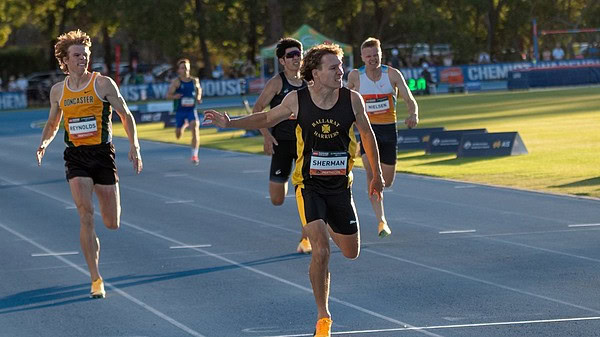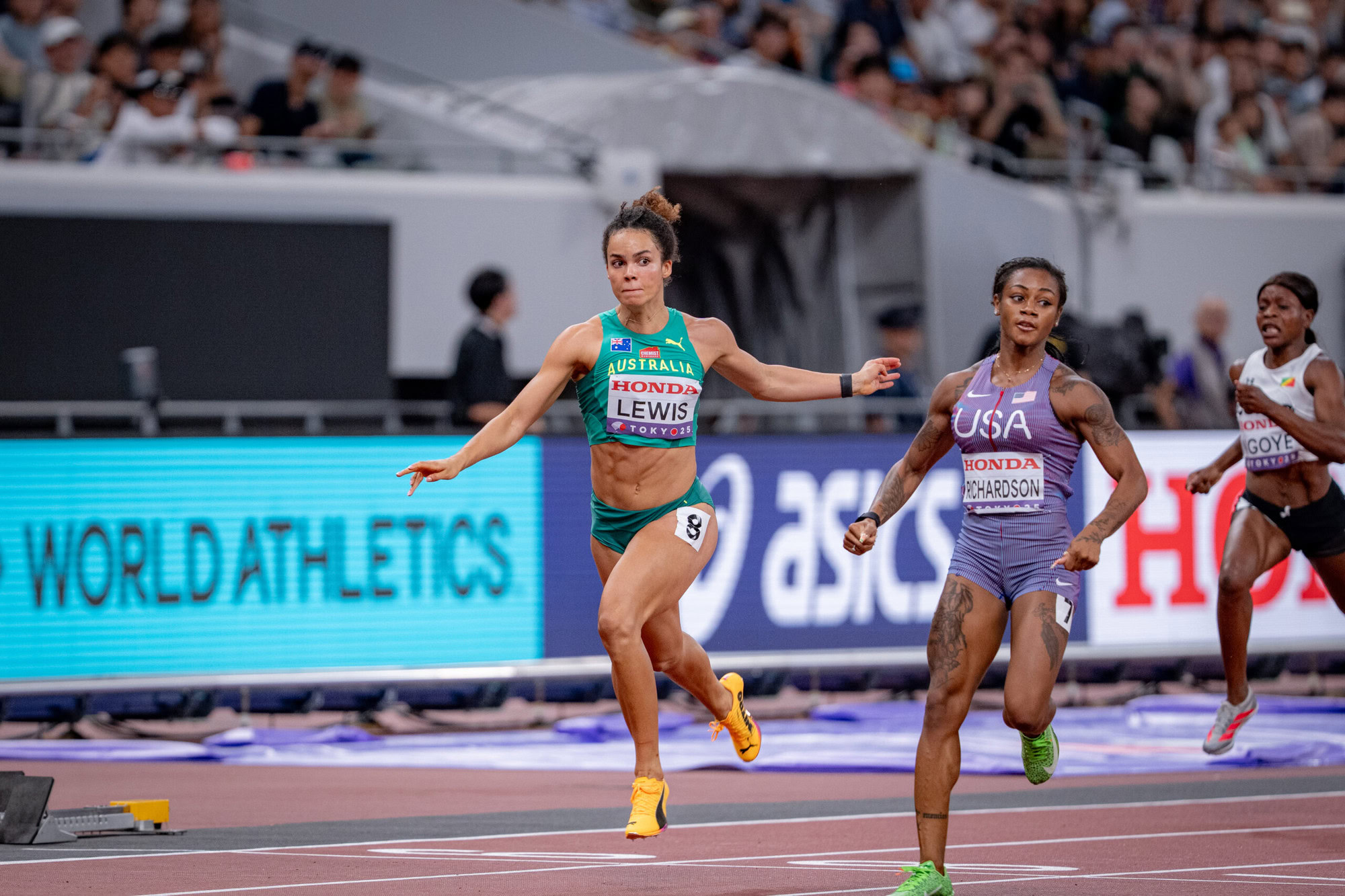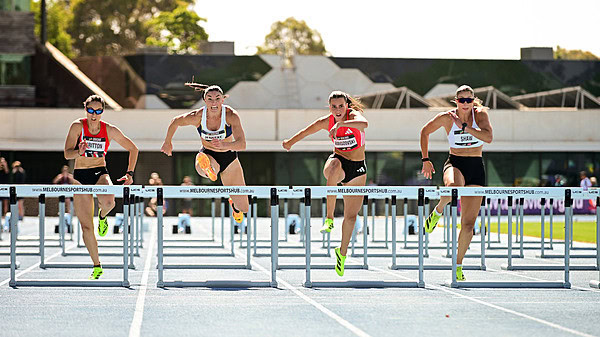Australia sent its biggest world championships team ever to the 2025 World Athletics Championships in Tokyo, with 88 athletes originally selected across the track, field, road and relays. From that group, around a quarter produced standout performances that not only delivered results in Japan but also reshaped where they sit at the start of a brand-new Olympic cycle.
This isn’t simply a list of performances… it’s about the mix of what was achieved, how it was done, and what it means for careers heading toward Los Angeles 2028.
All photos by Chiara Montesano courtesy of Australian Athletics.
Here are the 20 Australians who most impressed in Tokyo.
20. Rhydian Cowley
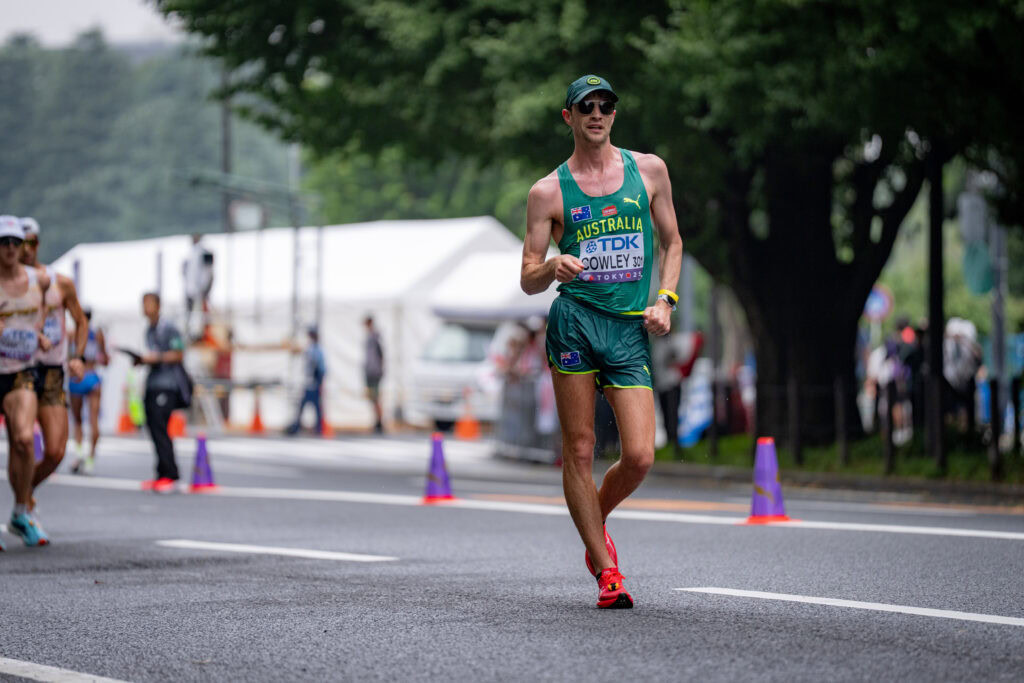
With an 11th place in the 35km walk Rhydian Cowley, the oldest male athlete in the team, recorded his highest world championships finish, bettering the 14th he recored over 20km in 2023 and even surpassing his 12th at last year’s Olympics. The 34-year-old continues to get better with age, and also finished 20th in the 20km walk.
19. Abbey Caldwell
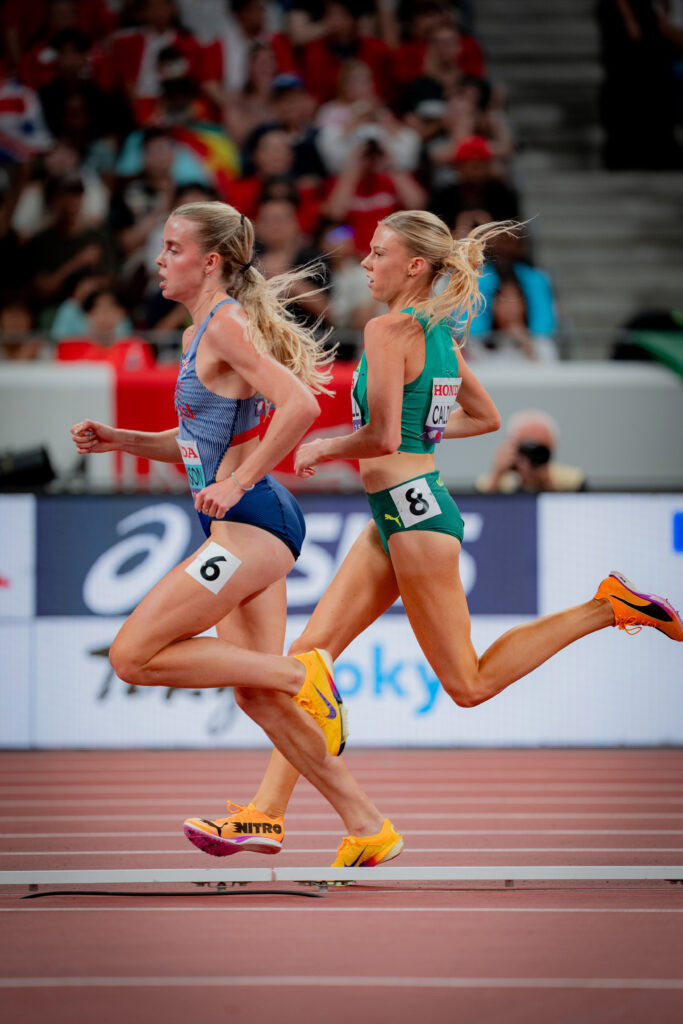
At just 24 years of age Abbey Caldwell has now been a semi-finalist at the last thee international championships over 800m (2023 worlds, 2024 Olympics and 2025 worlds). She ran competitively in her heat (1:58.71) and semi (1:58.44), finishing 14th overall. She ends the season as the third fastest Australian all-time, with her 1:57.70 season’s best and PB better than what the Australian record was this time last year.
18. Linden Hall
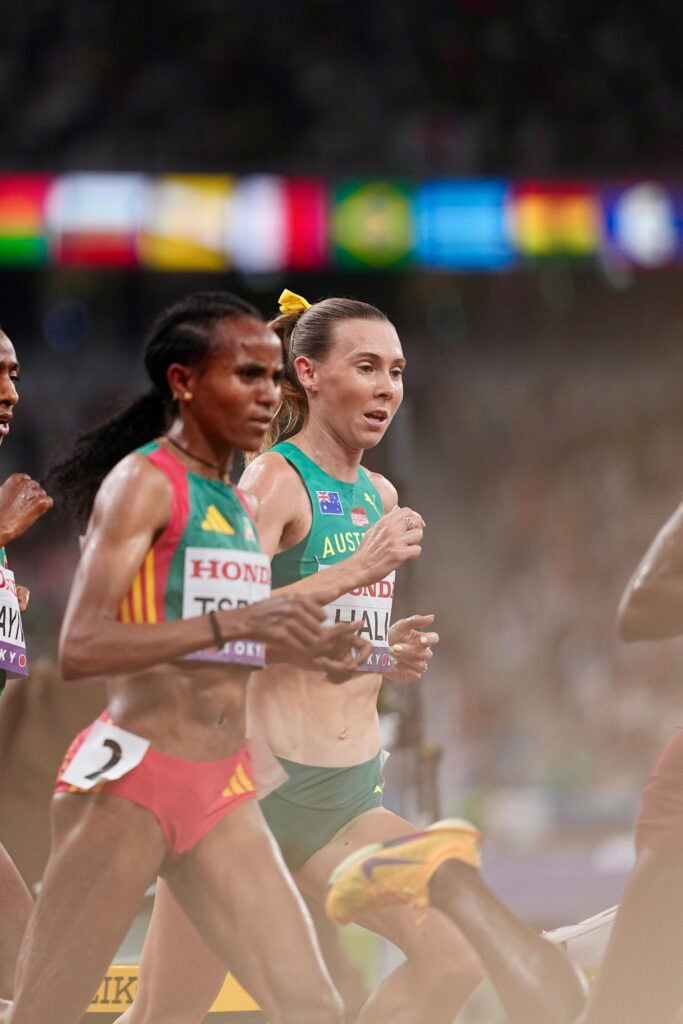
34-year-old Linden Hall entered the championships with a fresh PB of 3:56.33 and a third place in the Diamond League final. So to be knocked out at the semi-final stage, finishing 15th overall, was not the result she would have desired. But in the 5000m – a distance she hadn’t contested for 5-years prior to the start of this season – she found some redemption. With a 14:57.80 heat run she qualified for the final, where she finished 11th in 15:04.03. It’s likely it’s not the last time we’ll see her in action over the distance.
17. Rebecca Henderson
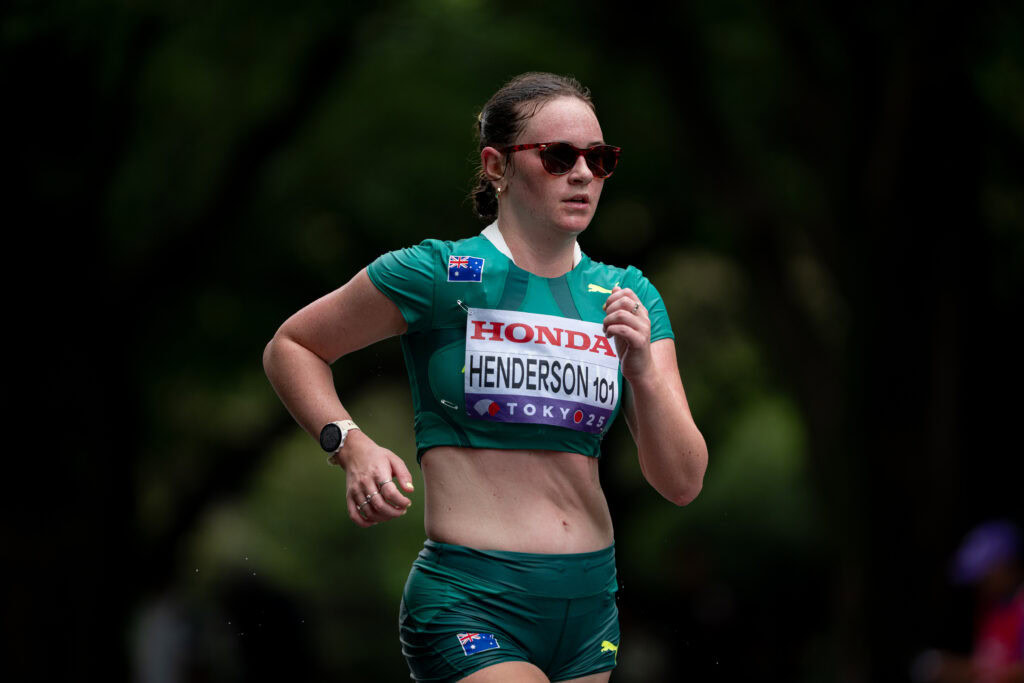
In her third world championships appearance 24-year-old Rebecca Henderson scored a career best 9th place in the 35km walk in the hot and humid Tokyo conditions. She also finished 21st in the 20km walk. Suited to the longer distances the pathway for race walkers is fragmented – a token 10,000m track race walk at the Glasgow Commonwealth Games in 2026, the 20km and 35km at the 2027 world championships and then only the 20km individual event at the 2028 Olympics.
16. Rose Davies
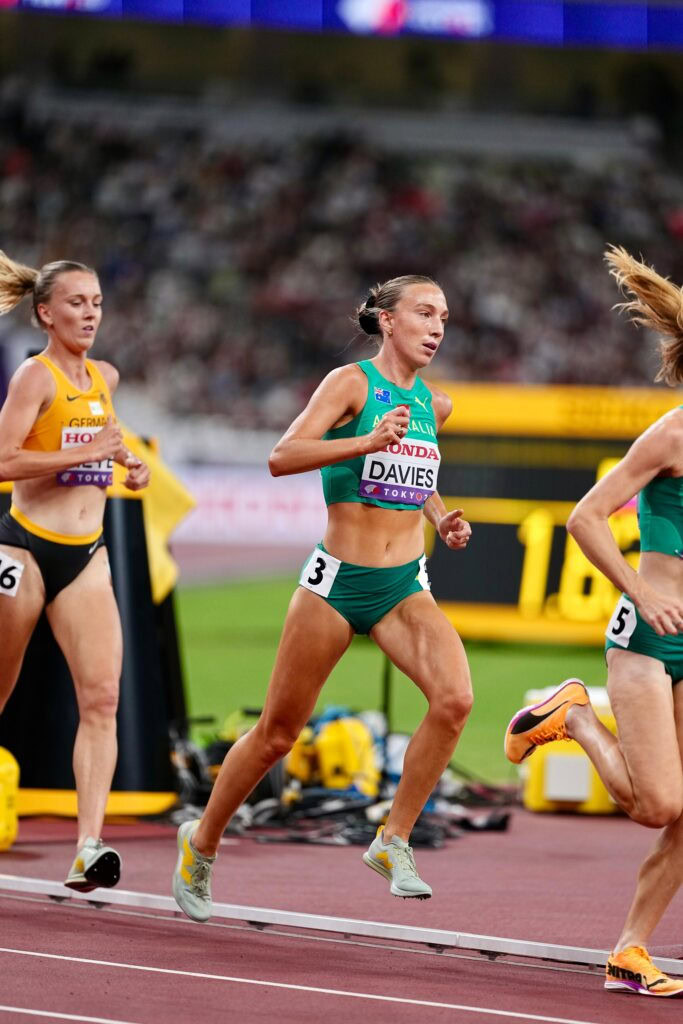
Australian record holder Rose Davies showed the she was not just there to make up the numbers in the final of the women’s 5000m, but that she can be a real player in the event in years to come. Her 10th place, equalling the best by an Australian at the championships, saw her finish in 15:03.61, after being fourth with 700m remaining. The 25-year-old’s progression since making the 2021 Olympics has been impressive – 34th to 27th to 19th to 12th to 10th – and with a PB of 14:31.45 and a strong finishing kick, looks poised to take the next step in her career in years to come.
15. Women’s 4x400m
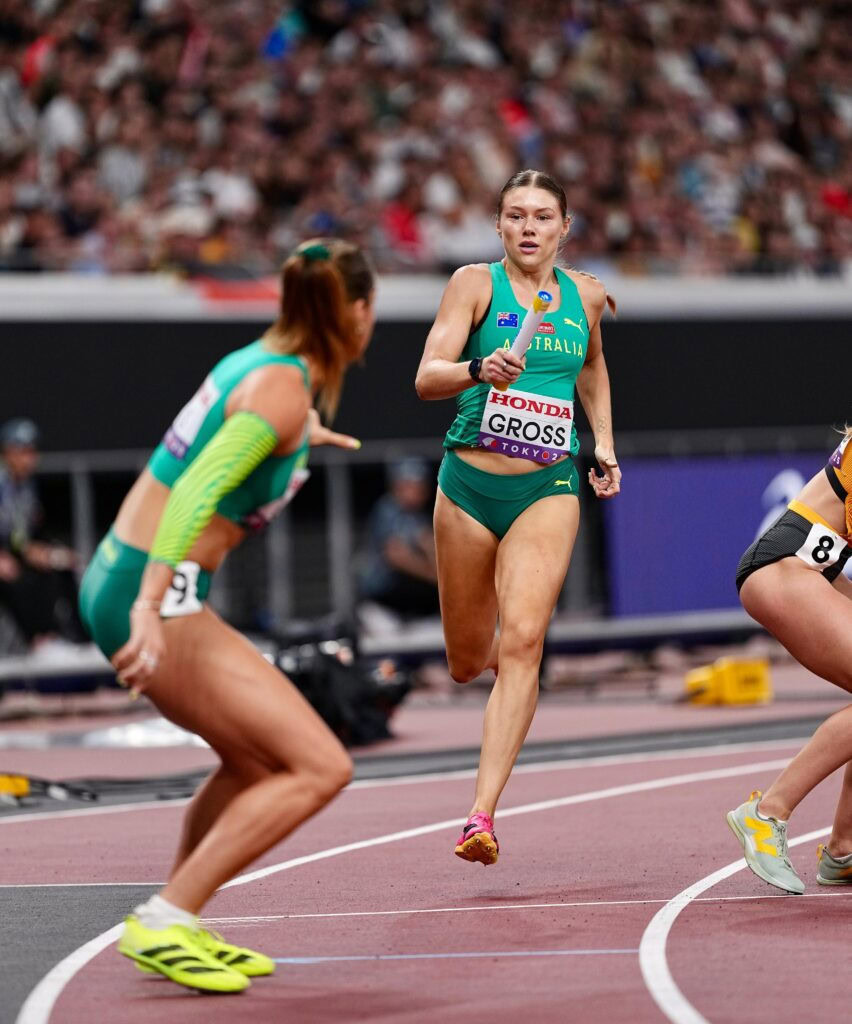
Only the Australian team at the 2000 Olympics has run faster than the quartet of Mia Gross, Ellie Beer, Jemma Pollard and Carla Bull did to finish seventh in their heat in Tokyo in 3:25.43. Gross ran a swift 51.60 out of blocks with Beer (50.94), Pollard (51.34) and Bull (51.55) all consistent. With further improvement the 3:23.81 Australian record is within sights. Unfortunately the event isn’t on the program at the Commonwealth Games, with only a mixed 4x400m available, but the World Relay Championships in Botswana in May 2026 may provide an opportunity to challenge it straight off the back of the domestic season.
14. Eleanor Patterson
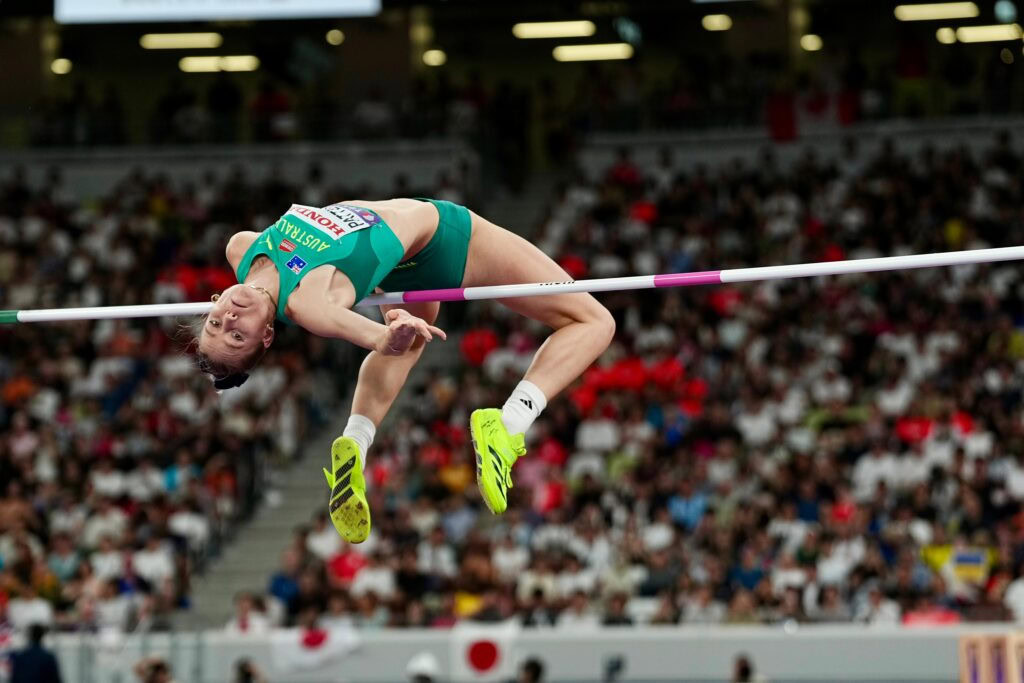
A pesky first attempt failure at 1.97m is all that kept Eleanor Patterson from taking bronze and completing a full collection of world championships medals following gold in 2022 and silver in 2023. The 29-year-old cleared 1.97m on her second attempt to equal her second highest jump of the season (following a 1.99m clearance indoors in February), with world record holder Yaroslava Mahouchikh and 19-year-old Angelina Topic sharing third from their first attempt clearances. Team mate Nicola Olyslagers took gold in 2.00m on countback from a new PB by Maria Zodzik from Poland.
13. Yual Reath
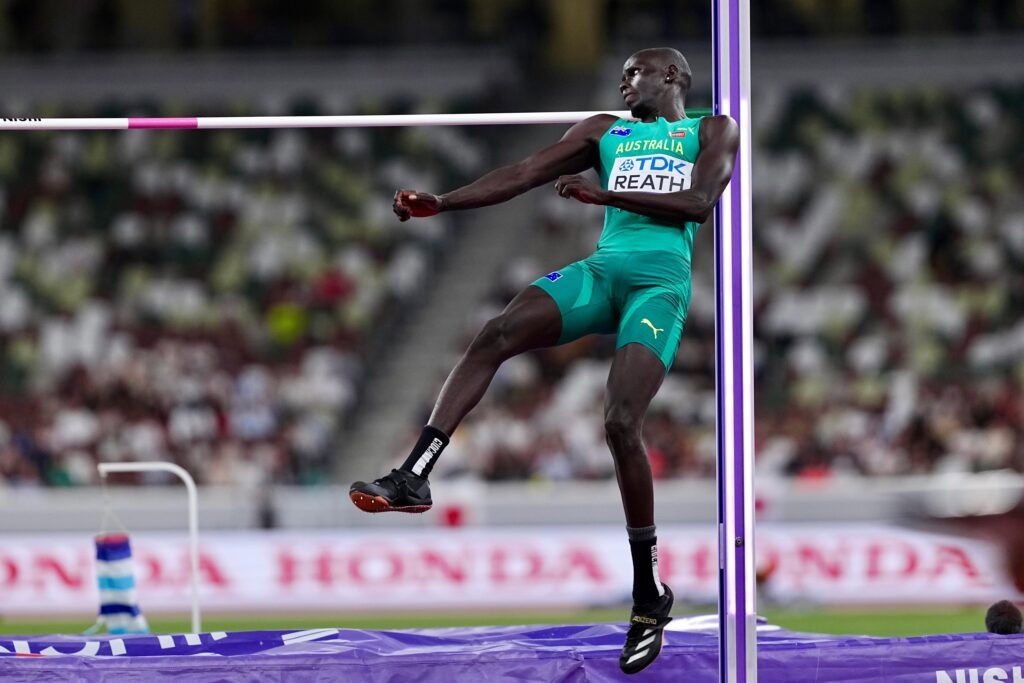
Men’s high jumping isn’t at a high point globally, with only 2.25m required to make the final in Tokyo. Nonetheless it still needed to be done, and Yual Reath was the only Australian of three lining up for the event to be able to do so. He managed only 2.20m in the final, but with his 2.30m personal best and growing experience on the world stage, could be a medal contender (2.31m took bronze in Tokyo).
12. Lauren Ryan
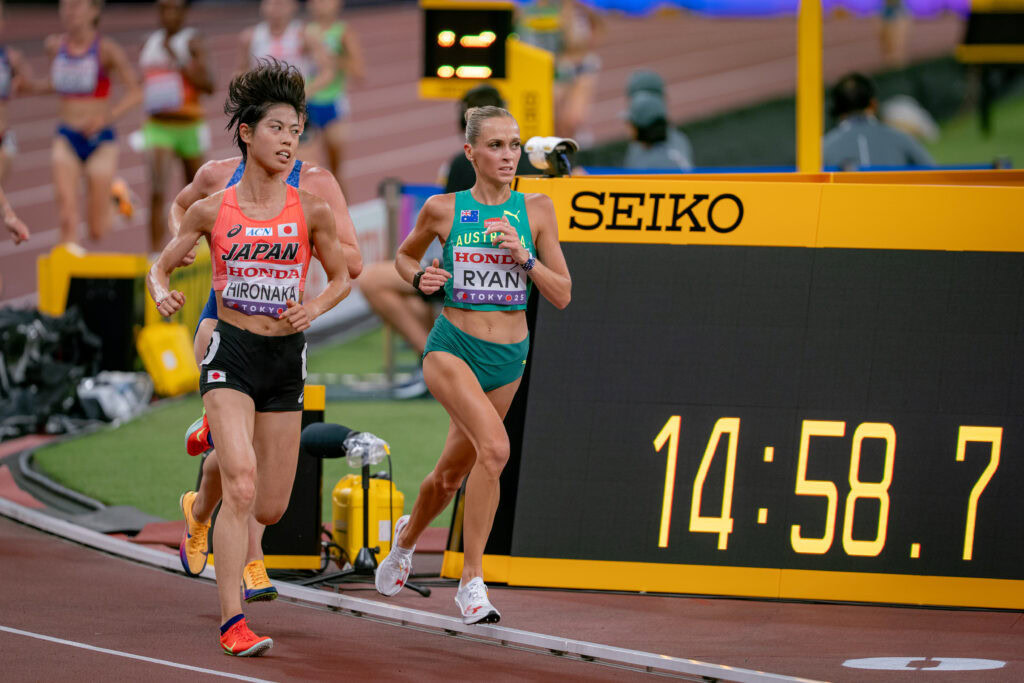
Former Australian 10000m record holder Lauren Ryan only contested the 25-lap event in Tokyo after missing a place in the 5000m following a selection appeal. Her 9th place in 31:27.78 was the second best ever by an Australian behind Benita Willis’s 8th in 2003. 27-year-old Ryan ended the year with new PBs set at 1500m (4:03.79), 3000m (8:37.56) and 5000m (14:40.39) and Half Marathon (68:43), representing broad versatility to challenge over the longer distances on the track or on the road in the future.
11. Cameron McEntyre
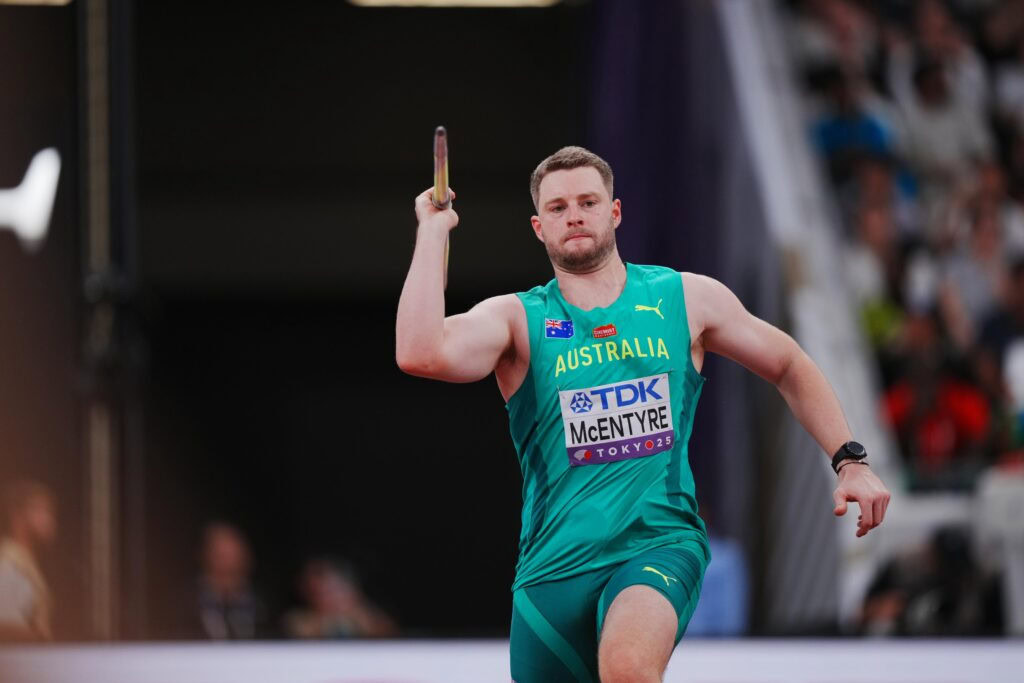
Cameron McEntyre entered the world championships ranked 23rd, threw a personal best of 83.03m, qualified for the final and finished 12th. His performance was the longest throw ever by an Australian at the world championships, and only the second Australian to ever make the final behind late Australian record holder Jarrod Bannister.
10. Gout Gout
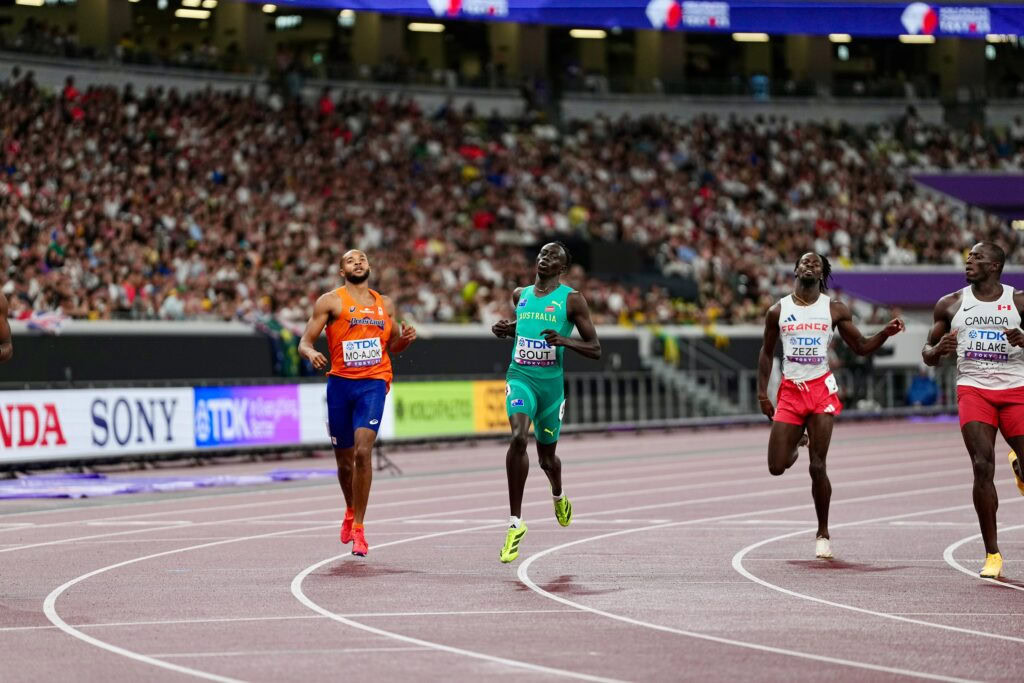
Gout Gout made his senior Australian team debut – the youngest ever male world championship representative at 17-years-old as well as the youngest in the 200m field – and ran credibly through the heats (20.23s) before running 20.36s in the semi-final to place 18th overall. With repeatable sub-20s marks the requirement to be in the top echelon of sprinters (all finalists ran sub-20 in the final) Gout now has experience against the required benchmark in the open ranks.
9. Men’s 4x400m
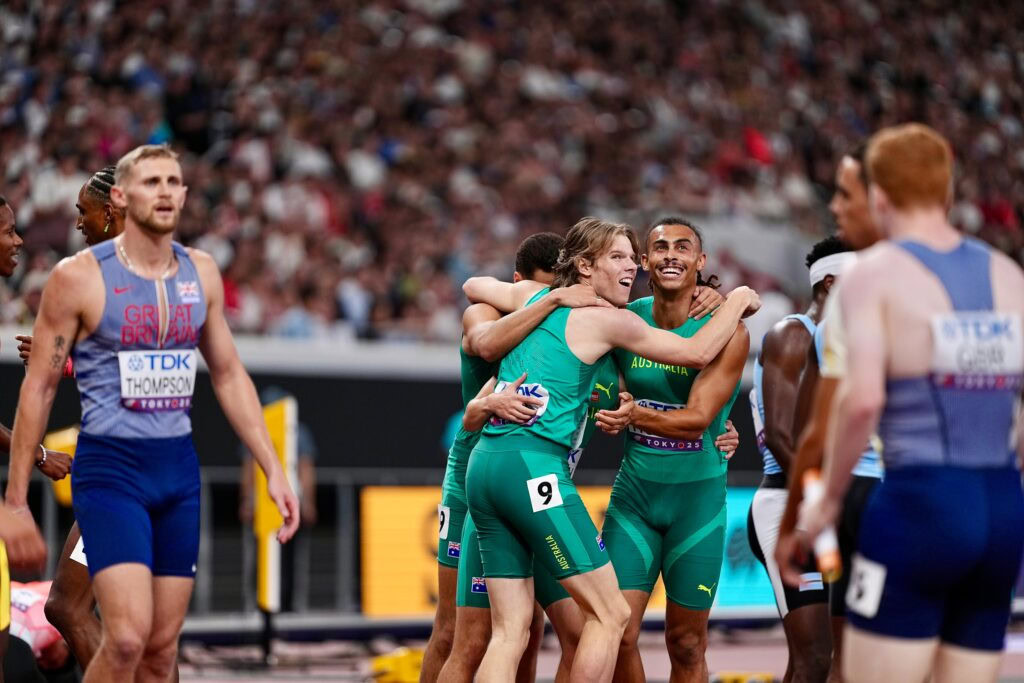
In the history books the result of the 4x400m quartet of Cooper Sherman, Reece Holder, Aidan Murphy and Thomas Reynolds will go down as a failure: a disqualification in the heats. But although there wasn’t a mark recorded, due to Murphy accelerating outside of the changeover zone, the team’s run was anything but failure: their ineligible time of 2:58.00 smashing the Australian record of 2:59.70 set by a more illustrious quartet of Darren Clark, Rick Mitchell, Gary Minihan and Bruce Frayne. While that record stands the swift splits from the entire team – Sherman 44.98 out of blocks followed by Holder (43.86), Murphy (44.76) and Reynolds (44.40) show that it is on borrowed time.
With there only being a mixed 4x400m on the program at the Commonwealth Games in Glasgow, a team of Cooper Sherman, Mia Gross, Reece Holder and Ellie Beer could conceivably run around 3:10.80 with the splits run in Tokyo. That would be a-second-and-a-half under the Australian record set at the World Relays earlier in 2025, which would have been good enough for 5th in Tokyo and within a few metres of a medal.
8. Reece Holder
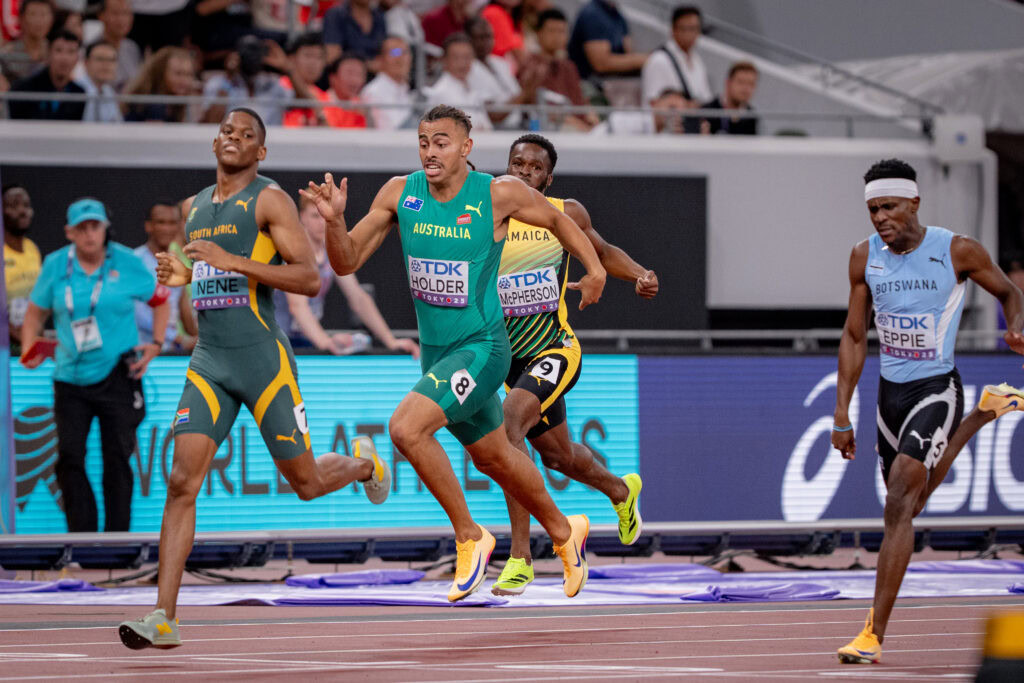
It wasn’t just Reece Holder’s relay running that was impressive in Tokyo, but his individual feats. The Queensland is on a streak of 8 consecutive sub-45 second runs, and quickly approaching national record holder Darren Clark for the most sub-45 second runs by an Australian (11), as well as the Australian record of 44.38s set back in 1988. The 23-year-old finished 10th overall in Tokyo, with his 44.54s heat run just one-hundredth-of-a-second outside his personal best, followed up by a 44.63s run in the semi-final.
7. Matt Denny
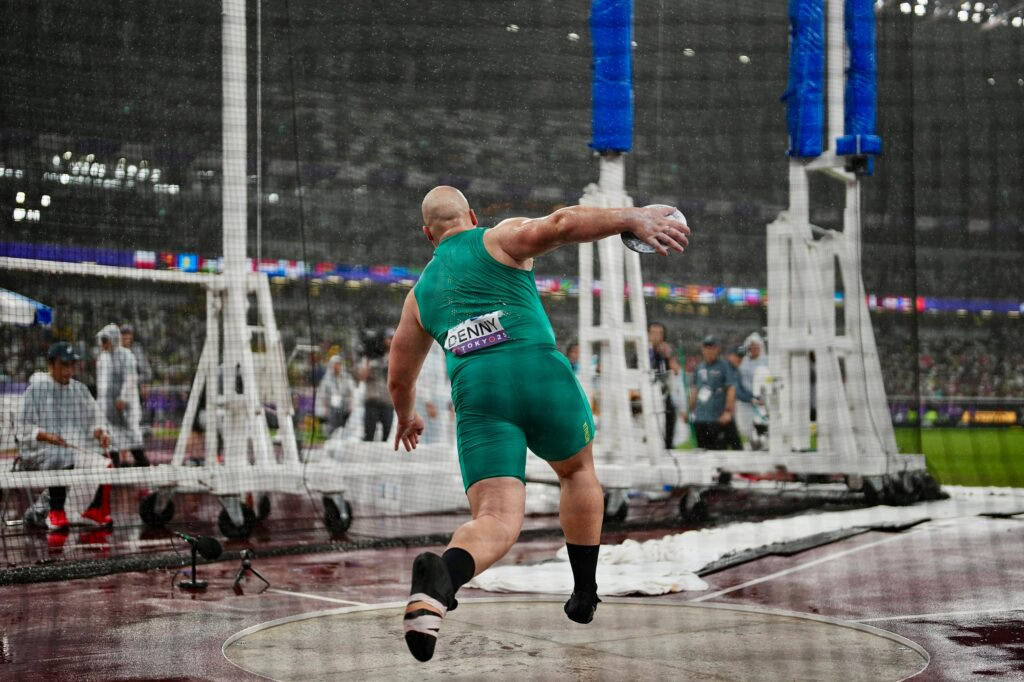
In diabolical conditions Olympic bronze medallist Matt Denny matched his fourth place from the last world championships. Denny sailed through qualifying with a single throw of 66.63m before finishing fourth in the rain drenched final with 65.57m. In a war of attrition Denny was frustrated and disheartened with the result, with only Sweden’s Daniel Stahl rising to the conditions, taking gold with a season’s best of 70.47m.
6. Torrie Lewis
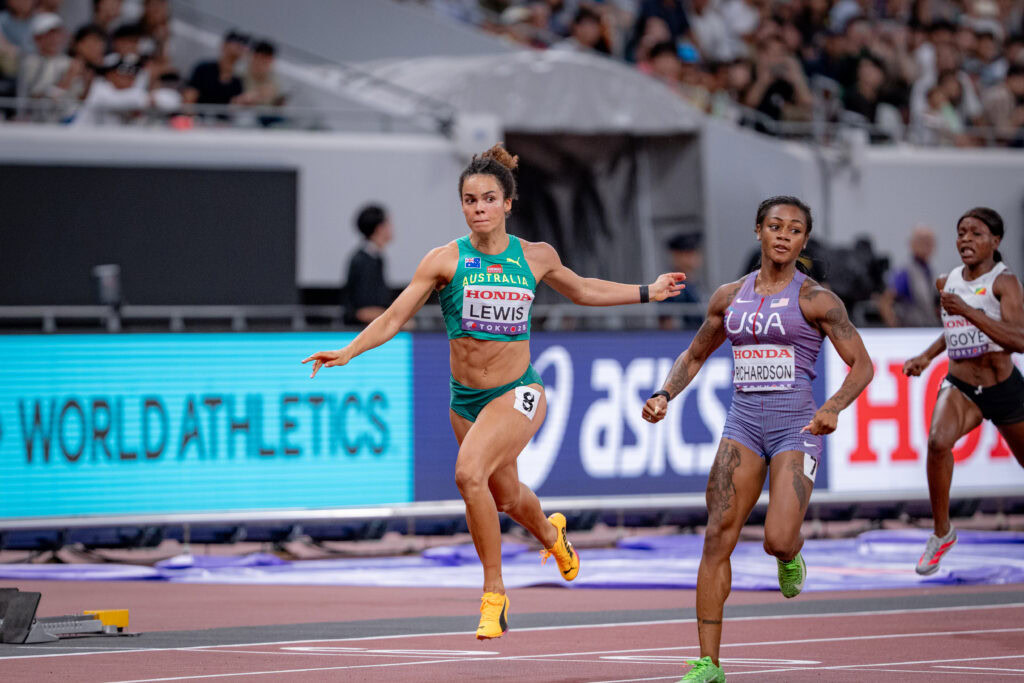
It’s tough thing to run a personal best in a major championship but Torrie Lewis did that with her first run of the championships: a new Australian record of 11.08s into a headwind to surpass her 2024 mark. She followed up with an 11.14s in the semi-finals to finish 14th overall, before returning to the track for the 200m with a 22.56s personal best in the heats and 22.69s in the semi-final to finish 12th overall. At only 20-years-of-age Lewis has shown that she’s ready to be competitive against the world’s best.
5. Ky Robinson
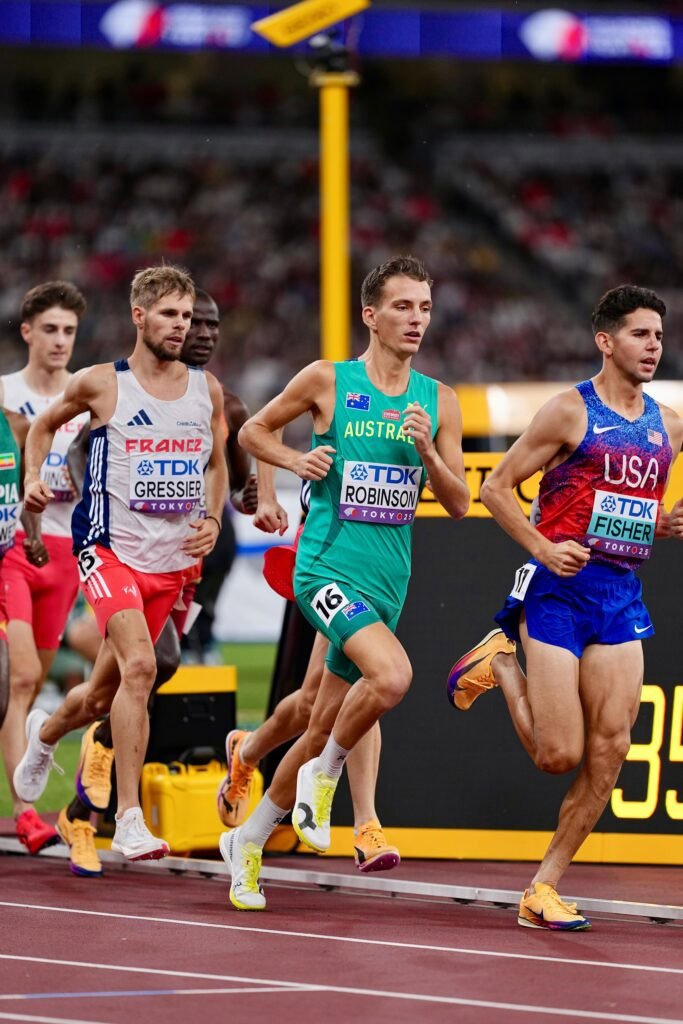
Ky Robinson showed his bronze medal over 3000m at the World Indoors earlier this year was no fluke, challenging for a medal in a tactical but fast 5000m final. He came up just short by a few tenths-of-a-second, in fourth place, with a 12:59.61, including a 2:26.4 final kilometre with the last lap covered in 54.07s. Only gold medalist Cole Hocker (52.62s) and runner-up Isaac Kimeli (54.06s) ran a faster final lap. The time was just short of Robinson’s personal best of 12:58.58 and came after a tame 2:42.5 first kilometre (13:32 pace), indicating that Craig Mottram’s national record of 12:55.76 may be on borrowed time.
4. Kurtis Marschall

Kurtis Marschall claimed Australia’s first medal of the 2025 World Athletics Championships in Tokyo, winning bronze in the men’s pole vault with a personal best-equalling 5.95m. In one of the deepest finals ever, seven men cleared 5.90m and six attempted six metres, as Sweden’s Mondo Duplantis set yet another world record at 6.30m and Greece’s Emmanouil Karalis secured silver. Marschall, repeating his Budapest 2023 bronze, said he was thrilled to deliver under immense pressure and valued the clean sheet through 5.90m. His result continues Australia’s proud pole vault tradition, which now stands as the country’s most successful event at the World Championships.
>> Read more: Kurtis Marschall wins bronze in historic pole vault final
3. Mackenzie Little
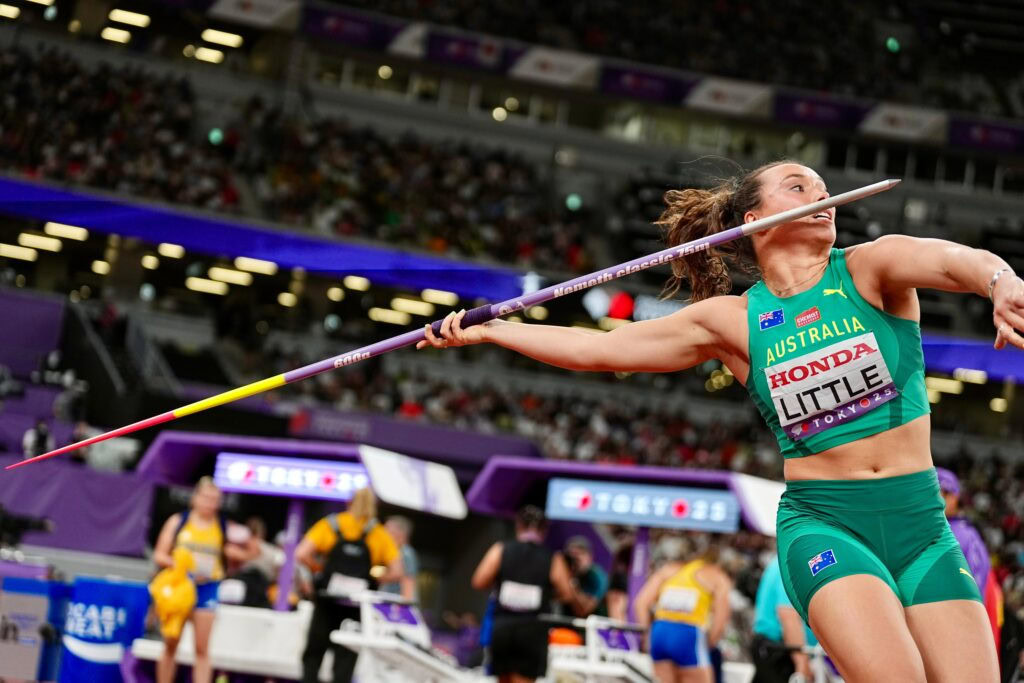
Mackenzie Little, balancing her medical career at Sydney’s Royal North Shore Hospital with elite sport, won bronze in the women’s javelin at the 2025 World Athletics Championships in Tokyo with an opening throw of 63.58m. The mark was surpassed only by Ecuador’s Juleisy Angulo, who set a national record, and Latvia’s Anete Sietiņa, who threw a personal best. Despite limited competitions this season, Little again delivered on the big stage, adding to Australia’s strong record in women’s javelin and securing her second global bronze. She credits her fulfilment in medicine and life outside athletics as the foundation for her success, embracing the challenge of balancing both worlds.
>> Read more: Doctor first, athlete always: Mackenzie Little wins bronze
2. Jessica Hull

Jess Hull made history in Tokyo by winning Australia’s first ever World Championships medal in the 1500m, taking bronze in a thrilling final behind Kenya’s Faith Kipyegon and Dorcus Ewoi. Hull bravely challenged the four-time world champion before digging deep to hold off Nelly Chepchirchir, clocking 3:55.16 in one of the fastest races ever. She then backed up in the 800m, breaking the national record with 1:57.15 in the heats and finishing eighth in the final with another sub-1:58 performance. The achievement cemented her as the first Australian woman to hold both the 800m and 1500m records, ending a 20-year drought for Australian distance medals at the World Championships.
>> Read more: Jessica Hull makes history with 1500m bronze
1. Nicola Olyslagers

Nicola Olyslagers claimed her first outdoor world title and sixth global medal by winning gold in the women’s high jump at the 2025 World Championships in Tokyo, clearing 2.00m flawlessly in torrential rain. Competing with “All for Jesus” written on her wrist, she described the victory as both an athletic triumph and a testament to her faith, capping a season that also included world indoor gold, a Diamond League trophy, and a new Oceania record of 2.04m. Fellow Australian Eleanor Patterson finished fifth but offered support to Serbia’s teenage medalist Angelina Topić, highlighting the camaraderie of the event.
>> Read more: Jumping for Jesus: Olyslagers wins gold in Tokyo
The team overall won 4 medals, had 9 top-8 performances and 28 top-16 performances. 57% of the team equalled or surpassed their ranking coming into the meet.





